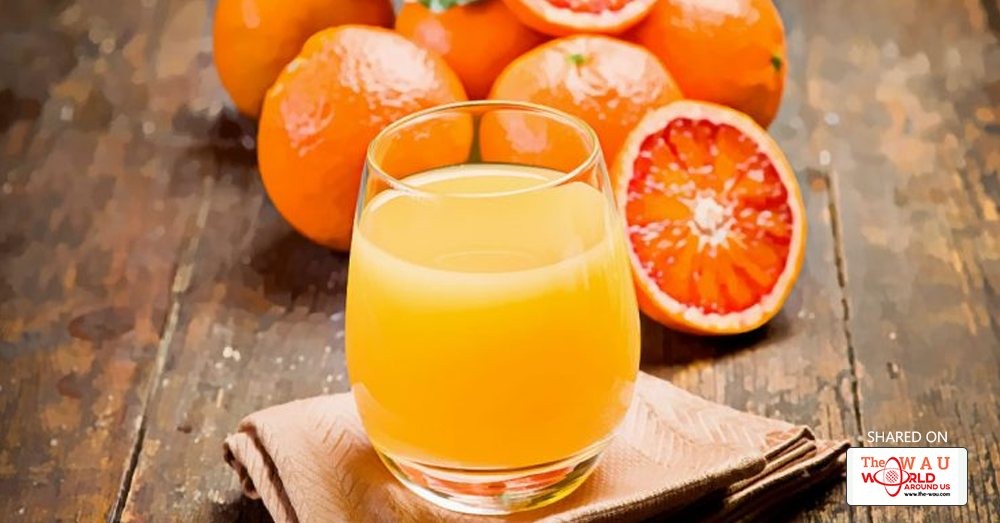A fresh-squeezed glass of orange juice contains 20.83 gm of natural sugars and 25.79 gm of carbs that turns into sugars too upon digestion. In essence, if you're a diabetic, be sure to stick to a small glass of fresh, homemade orange juice. Also adjust carb, sugar intake from other meals that day to compensate. Better yet, choose to eat the whole fruit instead.
If you’re living with diabetes, caution around what you eat and drink is natural. Certain foods like sugary sodas are clearly off the cards. But when fresh produce and fiber are recommended, or your sugar levels are dipping, is it okay to reach for a glass of orange juice?
What’s In Your Orange Juice?
A fresh squeezed glass of orange juice contains 112 kcal, 20.83 gm of sugars, and 25.79 gm of carbohydrates. This 248 gm serving also delivers lots of calcium and vitamin C, as well as nutrients like potassium, phosphorus, magnesium, vitamin A and folate. These minerals and vitamins are important for a range of normal body functions and also have antioxidant properties that make them good for health.1 Yet, there is concern around whether or not diabetics should even be considering having the juice due to the sugar and carb content in a glass of OJ(orange juice).
Should Diabetics Be Worried?
The American Diabetes Association recommends drinking low calorie(or even zero calorie drinks) like plain water or unsweetened tea and coffee. When you need a cool drink, they suggest water with a squeeze of lime. Flavored water with orange slices could work just as well. But what about orange juice?2 The Association advises against consuming sugary drinks of any kind, and that could well mean your favorite packaged orange juice doesn’t pass muster. In fact, some fruit juices can be as high in natural sugars as sodas, even if they don’t have any added sugar in them.3
If you’re watching your diet and taking care not to have high glycemic index(GI) foods which increase blood glucose levels quickly (causing a potentially dangerous spike in sugar levels), then aim for foods with a glycemic load of 10 and under. These are low GI foods. Once the GI goes over 20, they’re considered high GI and not a good idea for someone with diabetes. An orange on its own, eaten as a fruit, clocks a glycemic index of just 45 for a 120 gm portion, against a glycemic load of 5. The average fresh squeezed glass of unsweetened orange juice has a glycemic index of around 50, and a glycemic load of 12. So far so good. Orange flavored drinks, on the other hand, have much higher glycemic index levels, like aerated sweetened orange flavored sodas which have a GI of 68 and glycemic load of 23.4 Even packaged unsweetened orange juice could contain more sugar or carbs and may have a higher GI and glycemic load, so be sure of what you’re drinking.
Mind The Carbs!
If you decide to have orange juice, you must take care that it has no added sugar and is 100% juice. Check the packaging to be sure. As the American Diabetes Association explains, this can help ensure you don’t have too much sugar, but it is also important to keep an eye on the carbohydrate content. Too much carb intake can be just as bad if you’re diabetic. That’s because these carbs after digestion turn into glucose or blood sugars.5 So be sure to count the juice as the carb intake for a particular snack or meal and keep portion sizes small.
Still Want Some OJ?
No two juices are truly alike. While juice made from the same manufacturer can be consistent, you can’t expect that orange juice made by one manufacturer is the same as one made by another. What’s more, if you’re drinking your OJ fresh squeezed at home or made at a juice bar, it is likely to be quite different from the packaged kind. You just need to glance at the packaging to tell.
As you’ve already seen, the GI can vary greatly depending simply on the form you’re having your oranges in. So make conscious choices about which juice you drink and what nutrition you’re deriving from it to make the calories and carbs worth it. If you have a choice, stick to eating the fruit rather than drinking the juice so you get the benefits of fiber intake from the whole fruit(otherwise lost during juicing) and reduce the amount of sugar and carbs you’re consuming.
If you must have it as orange juice, have a small glass and top it up with ice, to cut the quantity you consume. Also adjust carb and sugar intake from other meals that day to compensate.
Share This Post















